Buy Our Insurance Or Your Kid Might Have a New Dad, Part 1
This probably also has something to do with software
Today in Gobbledy:
The new golf tour is stealing iPads from Detroit’s poor children
What insurance marketing can teach us about software marketing
I’m quickly distracted from that by some Allstate ads in the 1970s
LIV and Let Play Golf
Last week my wife-and-podcast-voiceover-actress proofread the newsletter and afterward said to me, “I felt like that wasn’t about software marketing at all.” She was not incorrect, and also this is my newsletter and I’m going to do whatever I want (that benefits my readers! Obviously!) Sometimes this will be about language and marketing, without the software. Please don’t unsubscribe.
If Susan wants to go raise $700 million from the Saudi Arabian sovereign fund and start a competing language-of-software-marketing newsletter, and that newsletter will pay each of you readers $42,000 to subscribe, then she should by all means do it, but I will then unsubscribe her from this newsletter.
Speaking of which, I’m alternately mesmerized and perplexed by the PGA vs LIV golf tour pissing match (not to be confused with pissing match play, the worst of all the golfing formats).
I’m not quite sure who to root for when it’s basically one group of Guys-Who-Just-Bought-a-Boat1 accusing a bunch of other Guys-Who-Just-Bought-a-Boat of being the real Guys-Who-Just-Bought-A-Boat (answer: root for both).
I mention this here because I’ve gone back and repeatedly re-read this statement from Rocket Mortgage, the mortgage company and PGA Golf event sponsor, where they say they’re no longer sponsoring golfer Bryson DeChambeau because he is playing for a different set of Guys-Who-Just-Bought-A-Boat. Here’s the statement:
"Rocket Mortgage has been a long-time supporter of the PGA Tour… [and] The Rocket Mortgage Classic has quickly become a fixture on the Tour, with players coming to Detroit to compete, while also raising crucial funds to help bridge the digital divide in our city. Our partnership with the PGA Tour extends to several prominent golfers, including Bryson DeChambeau…Effective immediately, Rocket Mortgage has ended its sponsorship agreement with Bryson.
I find this fascinating. They could’ve just said, “Effective immediately, Rocket Mortgage has ended its sponsorship agreement with Bryson.” They did not. If I may paraphrase, they said, “we threw a few dollars to buy iPads for kids, even though our owner could single-handedly bridge the digital divide in our city, and also we hope Bryson enjoys his new life in Riyadh.”
Why did they mention the digital divide here? What did it have to do with firing DeChambeau? Are they trying to take a moral stand? If that were the case, could they go to the Saudis and say, “Bridging Detroit’s digital divide is incredibly important to us, and the way we do that is by paying the PGA to sponsor a golf tournament. Could you give us money that we could give to those on the other side of Detroit’s digital divide?”
Or was it more like blackmail to other players, like “it sure would be terrible if something happened to all those iPads we bought for those kids on the other side of Detroit’s digital divide, wouldn’t it, golfers who decided to go join the other tour.”
Won’t somebody think of the children!
Allstate Used to Try to Scare the Crap Out of New Dads
A recent Planet Money podcast featured a great story about insurance marketing, which is not something I ever thought I’d write. But here we are.
I’ve heard lots of people in the software world say over the years that they’re afraid their product is becoming commoditized, and that that would be terrible and how do you market your product when it’s a commodity whine whine whine.
The reality is that sometimes your product is a commodity. And sometimes you think your product isn’t a commodity, and you pretend it’s not a commodity, but your buyer thinks it’s a commodity (ecommerce platforms, email service providers, etc).
While best case scenario is that your product is not a commodity, if it is a commodity it doesn’t mean you can’t market your product, and it doesn’t mean you can’t be profitable, and it doesn’t mean you can’t be creative in how you convince people to buy your product.
In the 1990s, GEICO completely changed how insurance companies go about marketing themselves, and there are some good lessons here for any software marketers struggling to differentiate their product.
Here’s the story:
Insurance companies are heavily regulated, so their products are fundamentally similar. So forever insurance commercials were focused on the idea that buying an insurance product provided security for your family. And sometimes that was done in explicit terms:
I actually had to do a little digging to see if this ad was for real, because there were no talking lizards or giant emus in it and for God’s sake it ACTUALLY TALKS ABOUT DYING. Like really explicitly.
I’m trying to even begin to imagine running this today.
But then I saw this:
This was a CAMPAIGN????? “IF YOU DIE”????? “If you die” was the CAMPAIGN????
The campaign’s message was “you might die and leave your little child behind and if you don’t want her mom to marry that hot dentist next door just to get some cash you better spend $5/month on some Allstate”?
Props to them for their explicit positioning - “The young man’s life insurance.” Less props for the message “sure would suck if something happened to you and you died and abandoned your family.” Also, it really left the market open for “life insurance for girls.”
There’s so many of these! They’re all so upsetting and terrible!
What the hell was my original point? Oh right, insurance marketing used to be entirely focused on a message of security and, apparently, an early upsetting death.
What? You want one more? Fine. One more. Then that’s it:
If you’re dead, someone else will tie your 2-year-old’s shoe. Probably Murray, who works at the deli. Buy some Allstate.
Were you wondering if this campaign worked as a TV commercial? Well, Gobbledy says that you don’t have to drop dead to find out:
Maybe you get this newsletter in email and you’re too lazy to click through that video (#myreaders) - here’s the jist. It’s a dad playing in a pool with his child. Delightful. For about 6 seconds. Then the voiceover:
Allstate Life Insurance says if you die young man we can help you make certain that little boy of yours won't go under…
It’s worth watching that because the “if you die young man” is truly (at least to my ears) jarring in a commercial.
And film of the kid swimming with the “little boy of yours won’t go under” could make this the darkest commercial I’ve ever seen. Congrats?
And the worst part of going down the if-you-die-young-man rabbit hole is that now this column is actually too long for Substack to deliver in email without cutting it off.
So - it’s a cliffhanger! Stay tuned, young man, for Part 2 next week where I’ll try to remember what I was going to say about how insurance ads related to software marketing. (Oh I remember - mascots!).
And good news, you don’t have to die to read it.
Readers’ Corner
Thanks to reader Jordan C. submitting this classic:
I’m not going to bother to learn more at arkestro.com.
Last night Alex Moffat, who plays the guy who just bought a boat on SNL and apparently lives in my neighborhood, walked into the restaurant I was eating in. I saw him and - I’m not kidding - immediately thought to myself, “hey, there’s that guy from my column.” Which just goes to show that I apparently do think the world revolves around me. Which it does. Sometimes.

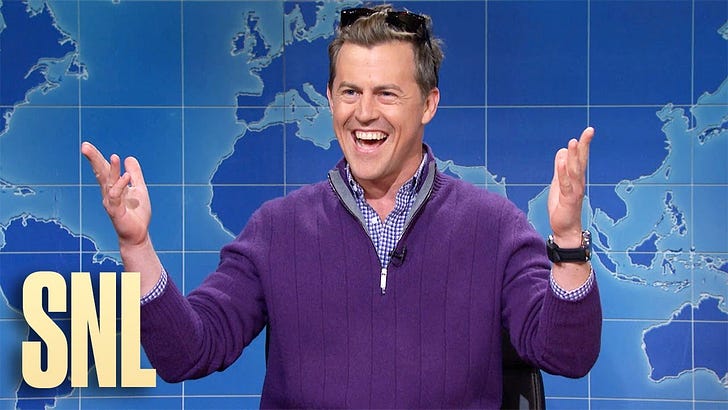


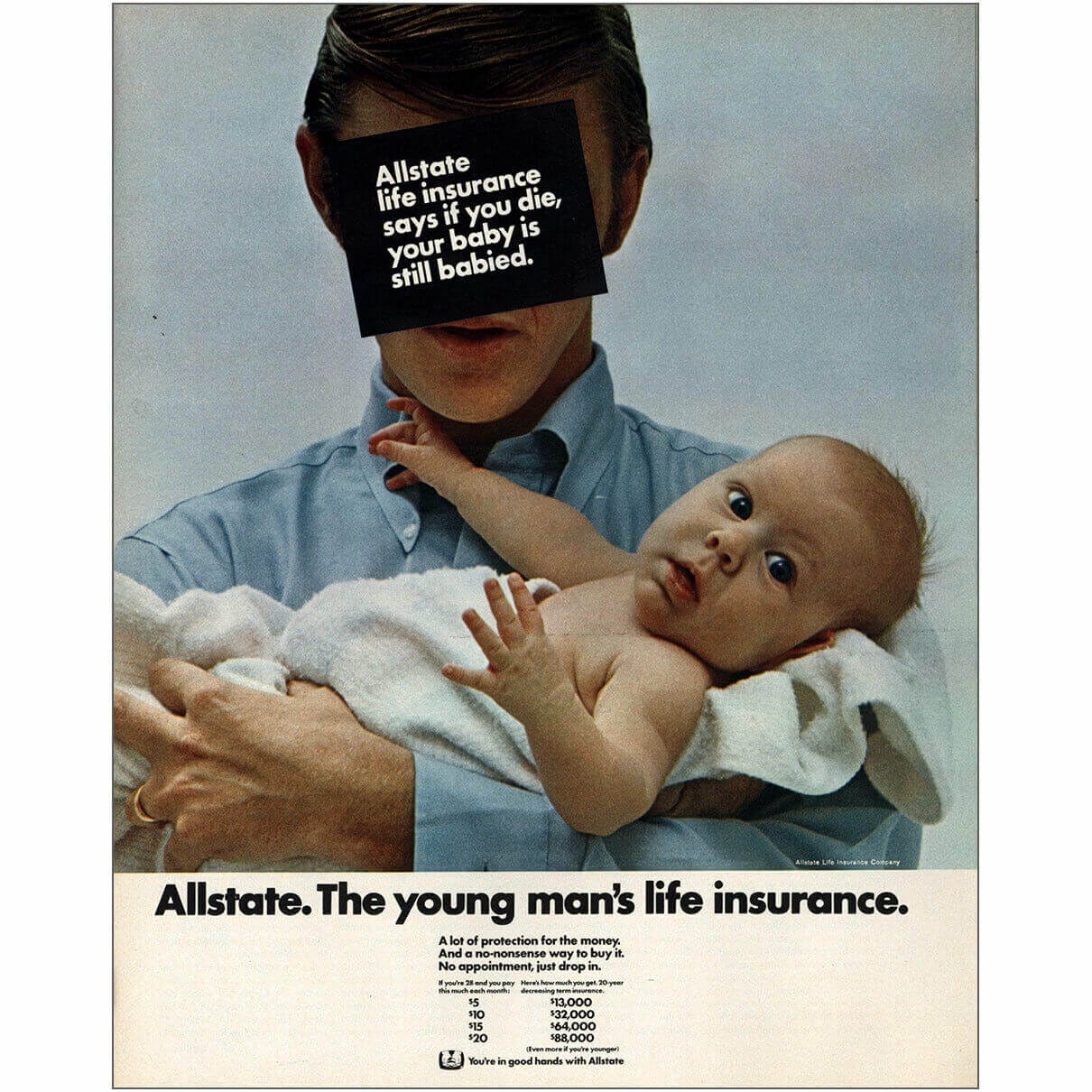

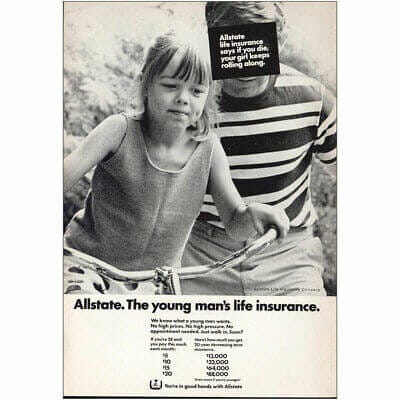

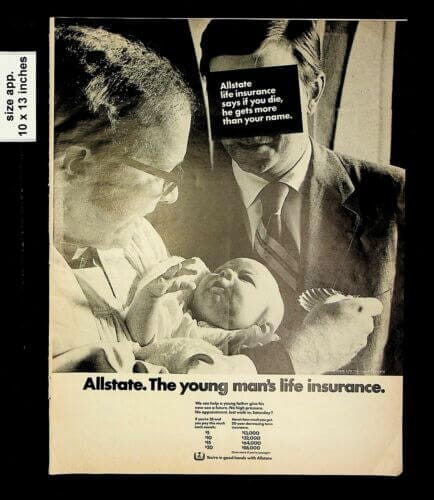
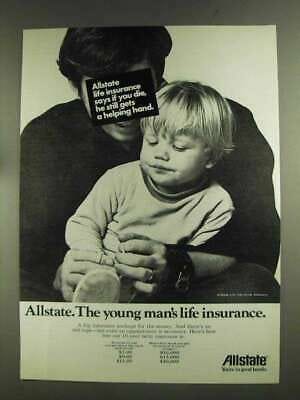

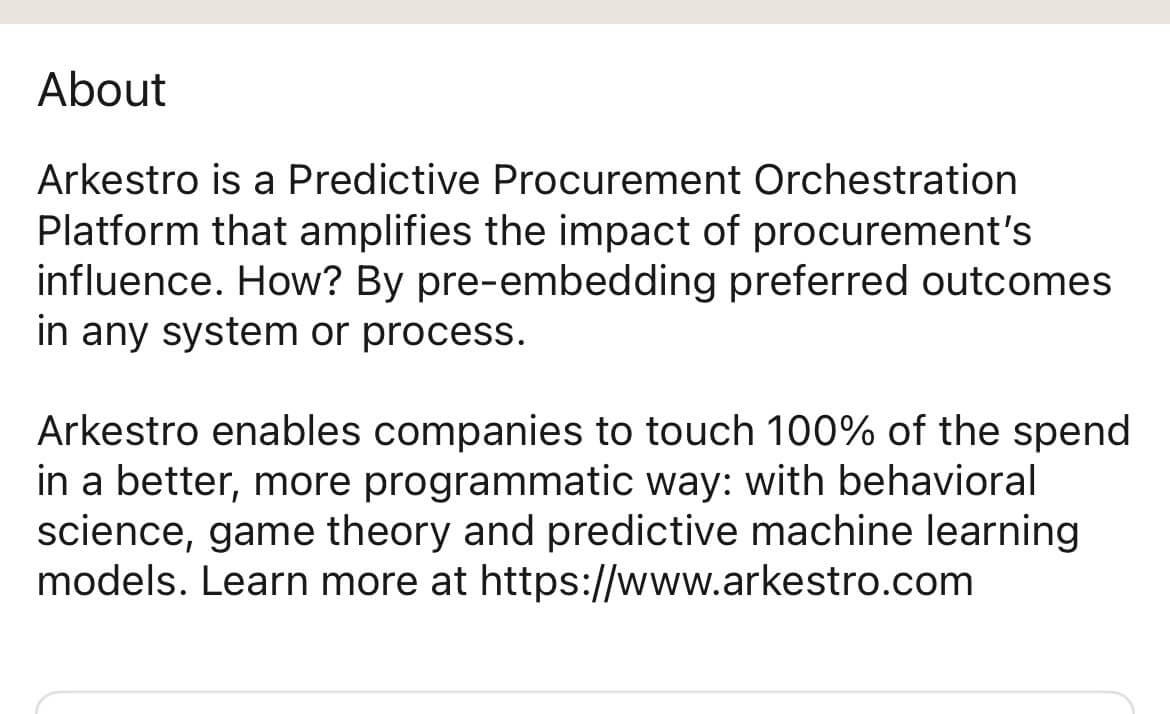
I would humbly submit that while the world does not revolve around you, it certainly does revolve near you. And as a resident of the City which would clearly expire but for Mr Gilbert, I think it's safe to say he could single handedly "bridge the whatever gap" for the entire planet with whatever spare change he keeps on his pontoon. His money don't jingle, it fold. Or whatever. But I have to say I like the fact that he called out Mr Doucheambo by name, cause, well, he's that which his name sounds like. That is all. Good day.